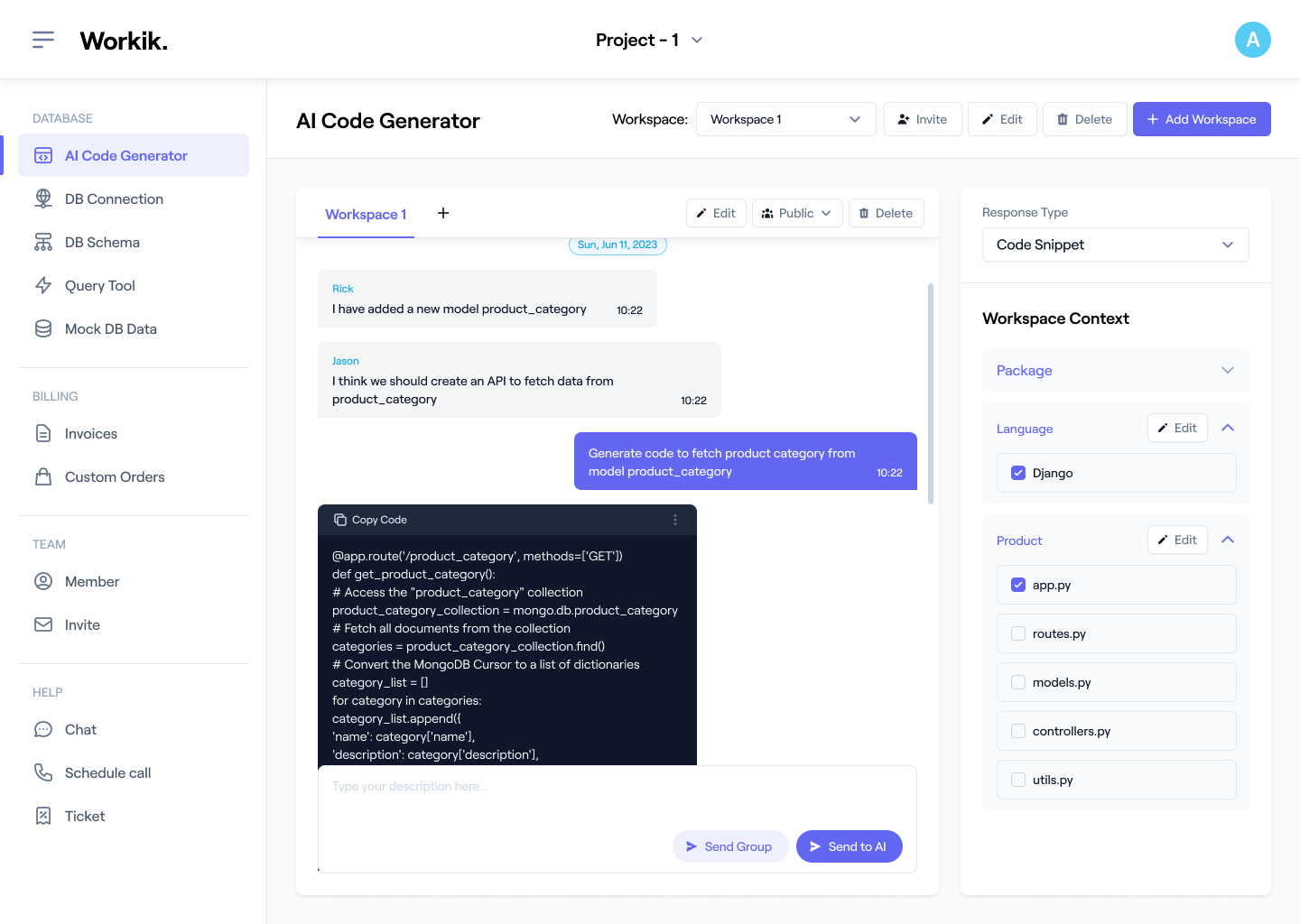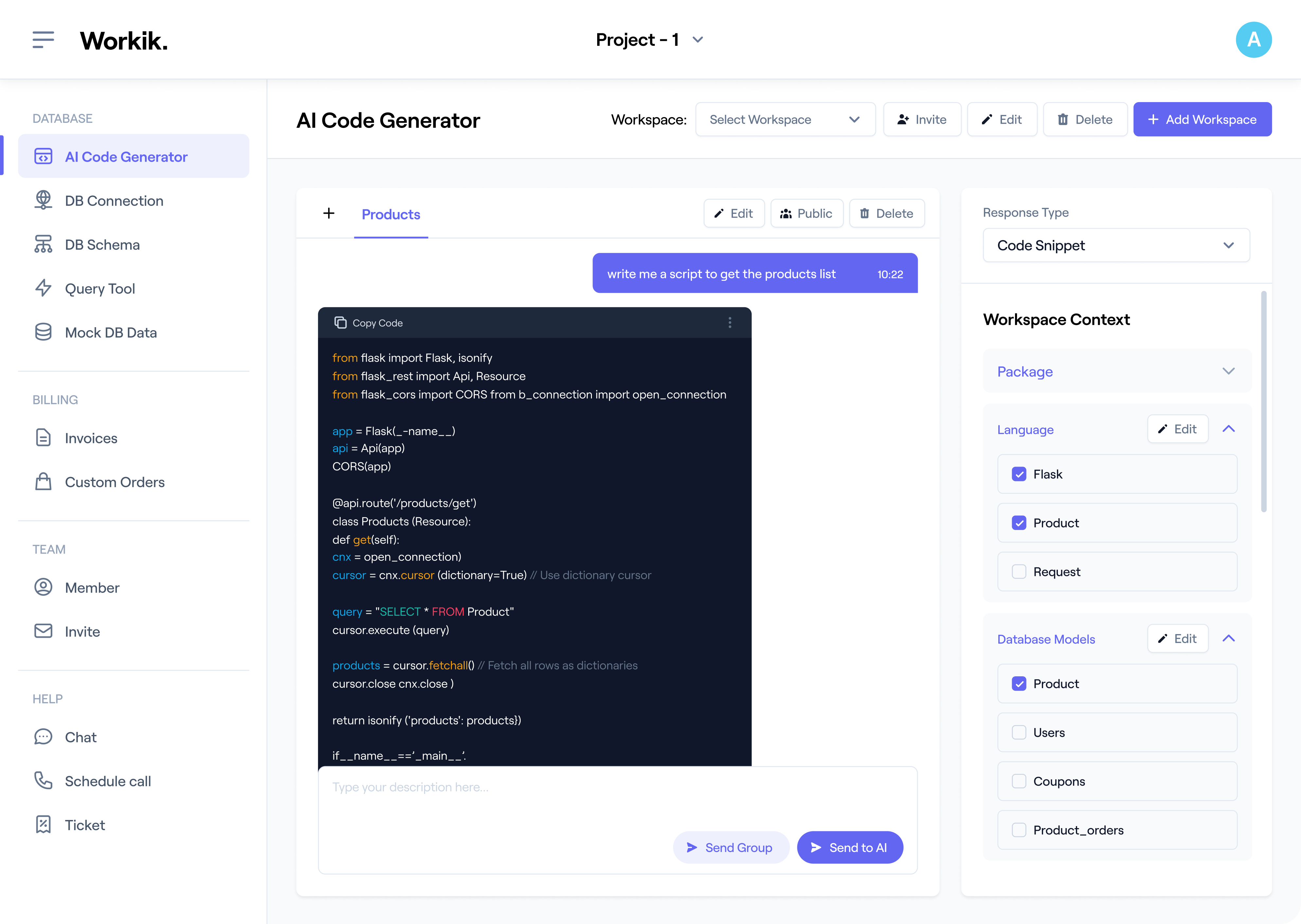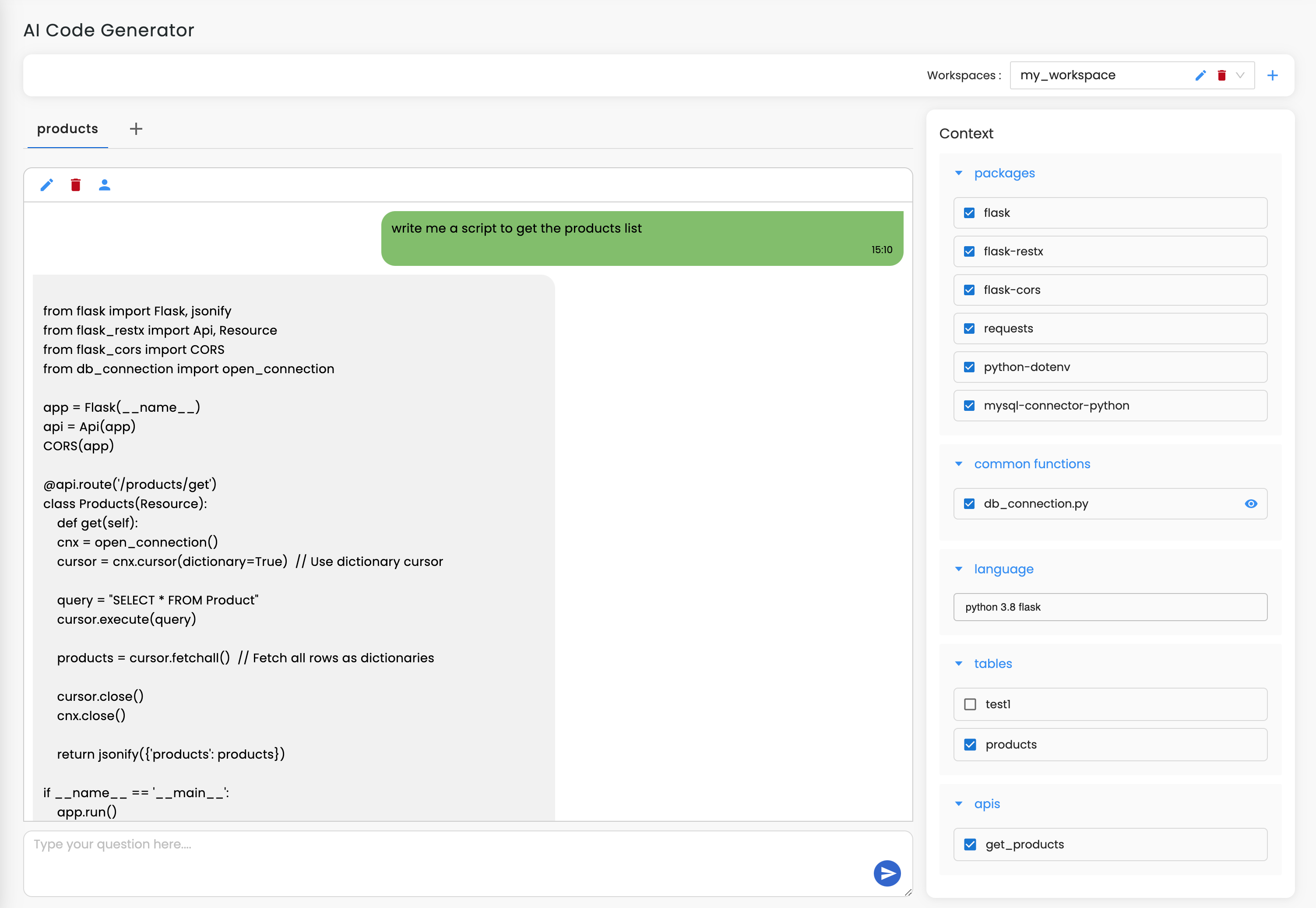
Join our community to see how developers are using Workik AI everyday.
Features

Create Form Validation Rules
Use AI to generate schema-based validation logic with Yup or Validator.js. Handles edge cases and custom input types.

Optimize Client-Side Validation
AI simplifies React Hook Form or Angular Reactive Forms integration, ensuring lightweight, responsive validation.

Simplify Backend Validation
AI streamlines middleware-ready functions with Express Validator, ensuring consistent API integration.

Debug and Enhance Performance
AI identifies bottlenecks, reduces redundant checks, and optimizes asynchronous validation.
How it works
Quickly create your Workik account and start building AI-Assisted form validation logic in seconds.
Import existing projects from GitHub, GitLab, or Bitbucket, or specify libraries like Yup, Validator.js, or React Hook Form. Add schema details, input fields, and other requirements for tailored AI guidance.
AI can generate client-side and server-side validation rules, handles form structures, and ensures cross-field dependency checks. Helps with regex generation, optimize scripts, generate tests, debug and more.
Invite your team to refine logic together. AI streamlines feedback, enhances performance, and ensures consistent, error-free functionality.


Expand
.png)
.png)
Expand


Expand


Expand


Expand


Expand


Expand


TESTIMONIALS
Real Stories, Real Results with Workik
Workik AI streamlined multi-step form validation, saving me hours. Perfect for complex frontend needs!

Sarah Lopez
Frontend Developer
The AI-generated Node.js validation middleware code cut my API integration time in half. Incredible!

Rajesh Kumar
Backend Engineer
As a beginner, Workik AI made validation easy with ready-to-use React logic. Game-changer!

Jenna Carter
Junior Developer
What are the popular use cases of Workik AI-Assisted Form Validation Code Generator?


Popular use cases include:
* Generate reusable validation logic for fields like email, passwords, and dates.
* Build client-side validation setups with React Hook Form, Angular Forms, or Vue Formulate.
* Create backend validation middleware for frameworks like Express.js or Django.
* Dynamically generate custom error messages for enhanced user experience.
* Validate complex nested forms and cross-field dependencies.
* Optimize asynchronous validations with efficient API integration and error handling.
What kind of contexts can I add in Workik AI-Assisted Form Validation Code Generator?


Adding context is optional but beneficial, as it helps the AI tailor output to your specific Form Validation project. You can:
* Specify frameworks or libraries like Yup, Validator.js, or Formik.
* Link GitHub, GitLab, or Bitbucket repositories to your codebase files.
* Add input field structures or schemas for dynamic validation generation.
* Include custom regex patterns or validation rules to fit your application’s needs.
* Define API endpoints via Postman or Swagger for server-side logic and error handling setups.
Can Workik AI handle validation for file uploads?


Yes, Workik AI helps with file types, sizes, and dimensions. For example, it generates rules to restrict uploads to specific formats like PDFs or JPEGs and ensures size limits (e.g., under 5MB) are enforced efficiently on both client and server sides.
Can Workik AI integrate validation with third-party APIs?


Absolutely! Workik AI allows you to set up validation logic for services like Stripe’s payment fields or Firebase's authentication inputs. For instance, it can generate rules to validate payment card numbers, CVV codes, or Firebase email verification during user sign-up.
How does Workik AI ensure accessibility in form validation?


Workik AI generates validation logic that adheres to accessibility standards (e.g., ARIA roles for error messages). It ensures that visually impaired users using screen readers can navigate forms seamlessly. For example, when a form field fails validation, AI can generate descriptive error text linked to the input field.
Can Workik AI optimize validation for performance-heavy forms?


Yes, Workik AI assists for forms with numerous inputs by using asynchronous validation strategies and batching validation calls. For instance, it can reduce redundant API calls when validating email availability in real-time or leverage debounce techniques for user-friendly validations.
How does Workik AI handle cross-field validations in forms?


Workik AI dynamically generates logic for cross-field validations, such as ensuring "Confirm Password" matches "Password" or verifying date ranges (e.g., start and end dates). It simplifies implementing dependency checks by analyzing form schemas and auto-creating rules compatible with libraries like Formik or Angular Forms.
Generate Code For Free

Form Validation: Questions and Answers
Form validation is the process of ensuring that user input meets defined requirements before being processed by a system. It helps improve data integrity, user experience, and security by verifying fields like email, password, dates, and more. Validation can occur on the client side (in-browser) or the server side (backend), or both, depending on the application’s needs.
Popular frameworks and libraries include:
Client-Side Validation:
React Hook Form, Angular Forms, Vue Formulate
Schema Validation:
Yup, Zod, Validator.js
UI Integration:
Bootstrap Validator, VeeValidate
Backend Validation:
Express Validator, Flask-WTF, Django Validators
Custom Validation Tools:
Regex, HTML5 Built-in Validation
Popular use cases include:
E-Commerce Checkouts:
Ensure correct payment details, shipping addresses, and promo codes.
Subscription Management:
Validate email addresses for newsletter sign-ups and subscription services.
Event Registration:
Validate participant details, payment methods for webinars or conferences.
Feedback and Reviews:
Check character limits, profanity filters, and rating inputs.
Healthcare Forms:
Validate sensitive patient information with specific formatting like SSNs or health IDs.
User Authentication:
Validate login credentials, sign-up forms, and password resets.
Career opportunities and roles for form validation expertise include Frontend Developer, Full-Stack Developer, Web Developer, UX Engineer, API Developer, and Software Tester.
Workik AI offers comprehensive support for form validation, including:
Code Generation:
Create validation logic for frameworks like React Hook Form, Angular Forms, and more.
Dynamic Validation:
Handle nested fields, conditional inputs, and multi-step forms effortlessly.
Regex Optimization:
Generate and refine regex for email, phone, and custom formats.
Testing:
Set up test cases using Jest or Mocha for consistent validation accuracy.
Error Debugging:
Provide actionable insights and fixes for validation failures in real-time.
Backend Integration:
Auto-generate server-side validation with Postman or Swagger API blueprints.
Cross-Platform Support:
Ensure validation works seamlessly on web, mobile, and PWA platforms.
Localization:
Generate multi-language error messages for global applications.
Compliance Validation:
Automate validation to meet GDPR, HIPAA, or other regulatory standards.
Explore more on Workik
Get in touch
Don't miss any updates of our product.
© Workik Inc. 2026 All rights reserved.

